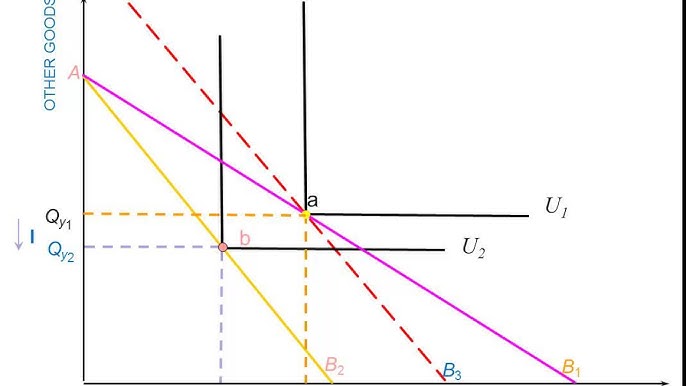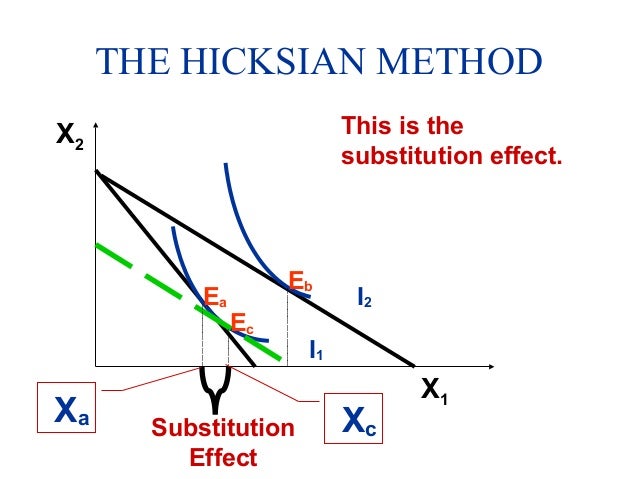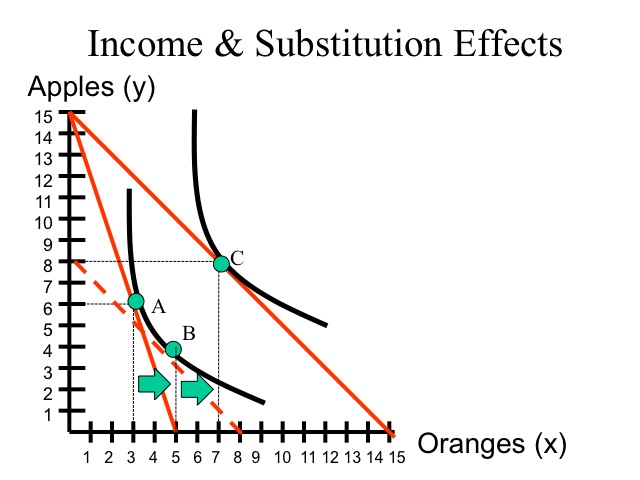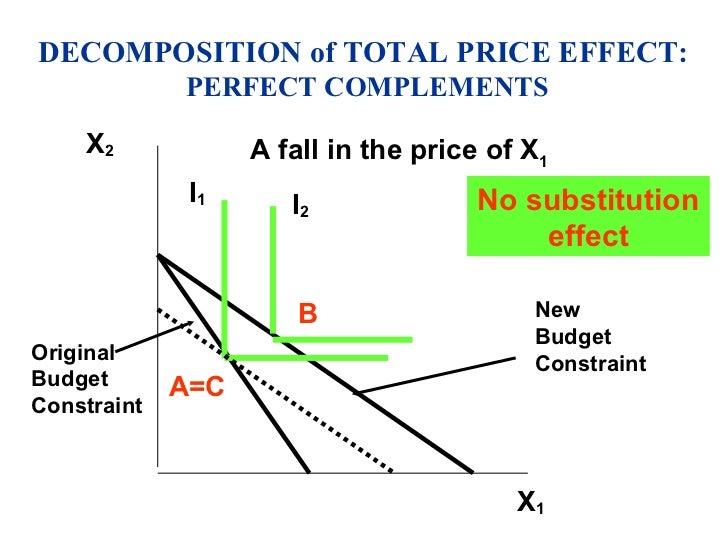Substitution And Income Effect For Perfect Substitutes
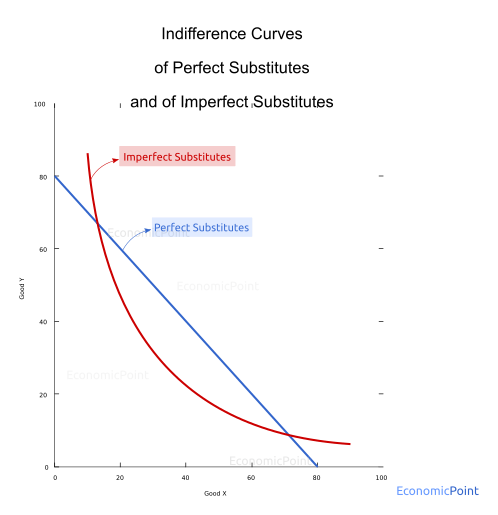
The income effect is the change in consumption patterns due to a change in purchasing power.
Substitution and income effect for perfect substitutes. Substitution effect and income effect. The income effect expresses the impact of increased purchasing power on consumption while the substitution effect describes how consumption is impacted by changing relative income and prices. For example when the price of a good rises consumers switch away from the good toward its less expensive substitutes. By the way we constructed them the substitution effect plus the income effect equals the total effect of the price change.
The buyer will buy. The substitution effect refers to the change in demand for a good as a result of a change in the relative price of the good compared to that of other substitute goods. Given the rather peicewise nature of the demands for each good in a utility function considering perfect substitutes i m not sure what the answer is. Hicks has explained the substitution effect independent of the income effect through compensating variation in income.
Suppose the price of good x falls ceteris paribus. I was recently asked about what the income and substitution effects are for perfect substitutes are. The consumer will always tend to substitute a good whose price has fallen for one whose price remains the same. The substitution effect is the increase in the quantity bought as the price of the commodity falls after adjusting income so as to keep the real purchasing power of the consumer the same as before.
But income effect is positive in case of normal goods and negative in case of inferior goods. The substitution effect is always negative. Alternative way of analyzing a price change. The price effect income effect and substitution effect under qlp have been explained in fig.
But if the price of good a rises it means that the income increases because you can get more good a with the same income level. The marginal utility of good a will decrease. At this point he purchases oa 1 of good x and ob 1 of good y. It is because holding the real income constant.
Unlike the substitution effect the income effect can be both positive and negative depending on whether the product is a normal or inferior good.





